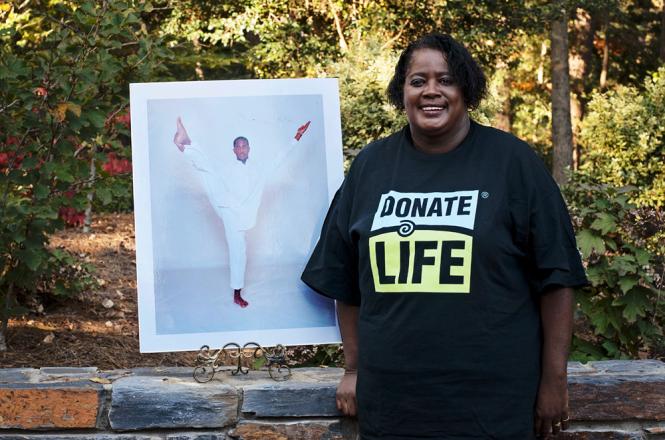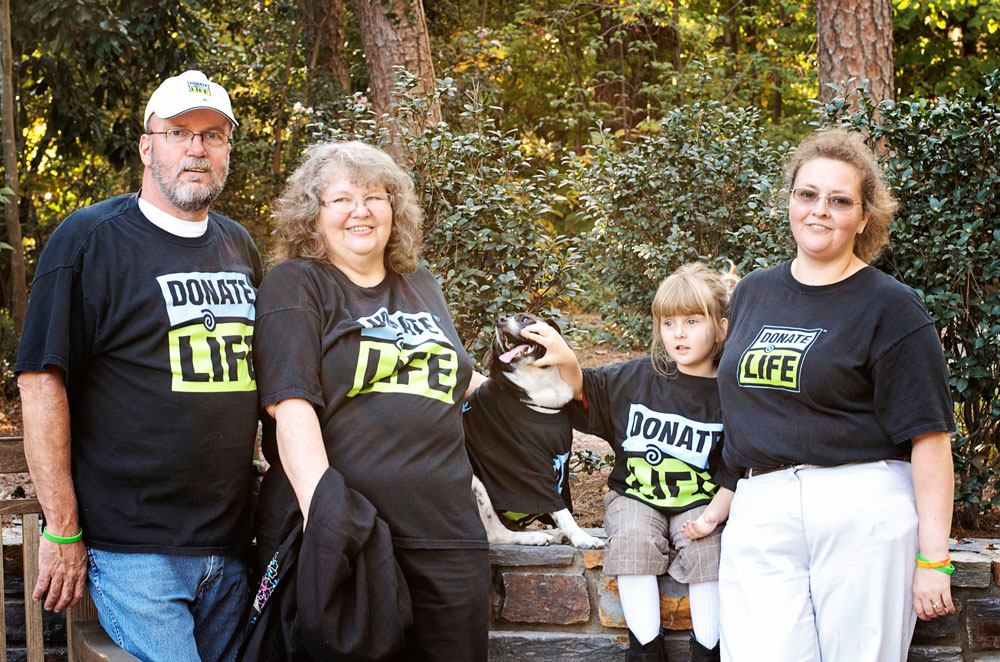Home / About Donation / Donation Facts
Donation Facts
Get answers to popular questions about registering as an organ, eye, and tissue donor

Donation Facts
Fact: A medical professional’s first priority is always to provide care and preserve life.
Doctors will make every effort to save a patient’s life, regardless of whether or not that patient is a registered donor.
Fact: Organ and tissue donors can have an open casket.
HonorBridge works with funeral service professionals to coordinate the family’s wishes for burial with organ and tissue recovery. Our donors are always treated with dignity and respect, and their bodies can be viewed at a service after their donations have been recovered.
Fact: Every major faith tradition supports donation.
And in every culture, people believe that the decision to care for and help our neighbors is a good and moral choice. The decision to be a donor is an individual choice that is supported by diverse communities and belief traditions.
Fact: Anyone can register to be an organ, eye, and tissue donor.
You can decide to be a registered donor at any age, regardless of any health conditions. Medical professionals will evaluate each donor’s eligibility when the time comes.
Fact: The waitlists for organs are designed to evaluate every patient equally.
Blood type, location, time on the waitlist, and other health factors are used to determine the perfect match when a donated organ is available. Rich and famous people can’t get moved to the top of the waitlist, and neither can anyone else. It is illegal to buy or sell organs in the United States.

Your Decision
Does everyone believe in organ, eye, and tissue donation?

Registering to be a donor is a very personal decision. Every major faith tradition supports donation. And in every culture, people believe that the decision to care for and help our neighbors is a good and moral choice. You should learn as much as you can and talk to your faith leaders, friends, and family about your decision.
Frequently Asked Questions
How do I register to be an organ, eye, and tissue donor?
There are three ways to register: online, at the DMV, or in the Health app on your iPhone.
If you register at the DMV, a red heart will be placed on your driver’s license or ID card. This symbol means that you have made the lifesaving decision to legally authorize your organs, eyes, and tissues after you die.
Do I have to register online?
No, you can also register with a paper form. You can request this via our contact us form.
Can I change my mind after I register?
Yes! You can update your donor record. The changes you make to your online donor record will be permanent, and they will supersede your DMV donor record. If you registered at the DMV, you should update or change your record there. If you registered online, update or change your record online. Simply log in to remove yourself from the NC Donor Registry. This change takes effect immediately.
If I am an organ, eye, and tissue donor, does my family have to pay for the donation process?
No. All costs associated with donation are paid by the organ procurement organization. Your family will only be responsible for hospital charges before your death and for funeral expenses.
Will registering as a donor change the medical care I can receive before I die?
No. Your healthcare professionals will always do everything they can to save your life, regardless of whether or not you are registered as a donor.
Is there any age limit for donation?
No. A potential donor can be any age.
Can my family earn money or have expenses covered if I’m a donor?
No. It is against the law to buy or sell organs and tissue in the United States. Your family will not have to pay for donation expenses, but they also cannot be paid or reimbursed for hospital or funeral expenses.
How does HonorBridge transport and track organs recovered that are sent far away?
HonorBridge will use both commercial and private air transportation to ensure organs arrive at the correct destination. In many cases, a tracking device is used so that we know the organ’s exact location.
Can I be a donor if I die at home?
Yes, you may be able to be an eye and tissue donor if you die at home. Your organs can only be donated for transplantation if you die in the hospital on a ventilator.
Will donation change my options for the funeral?
The recovery of organ and tissues may take time and could slightly delay the process of moving a donor to a funeral home. HonorBridge works with funeral directors to minimize this delay. Our skilled recovery professionals will work in a sterile environment and treat every donor with respect. When the donor is transported to the funeral home, our partners there can prepare the body for viewing or an open casket if desired.
How do I donate my body for research?
Individuals considering whole body donation are advised to make arrangements with the medical school or research program of their choice. Usually, being an organ donor prevents whole body donation, but each program is different. Regardless of your decision to be an organ, eye, and tissue donor or to donate your whole body to science, be sure to let your family know your decision.
How do I know if I’m already registered?
If you registered at the DMV in North Carolina, you should have a heart on the front of your license.
If you signed up for the National Donate Life Registry online at DonateLife.net, RegisterMe.org, or in your iPhone Health App, go to RegisterMe.org and click “Access Your Registration” to view or make changes to your donor registration record.
Can someone who identifies as LGBTQ+ become an organ, eye, or tissue donor?
Yes. People of all sexual orientations, genders, gender identities and expressions can register to be an organ donor. Certain regulations mandated by the FDA may affect a person’s eligibility for eye and tissue donation. Learn more.
Can someone who is living with HIV be an organ donor?
Yes. The 2015 HOPE Act provides donation and transplantation opportunities to people living with HIV.
Where can I learn about becoming a living donor?
Thousands of lives are saved every year through the generosity of living donors. HonorBridge does not facilitate living donation, but you can learn more about it at DonateLife.


